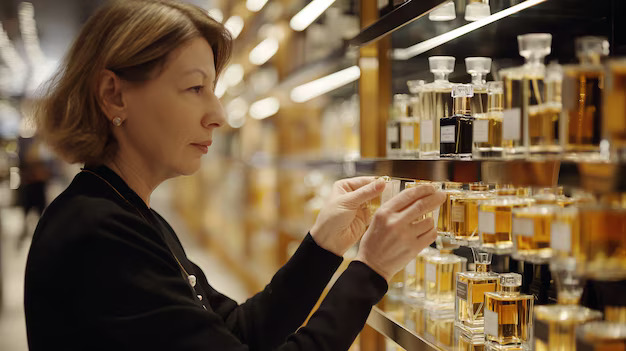The Cosmetics and Perfumery industry is a vibrant, dynamic, and ever-expanding global sector that offers tremendous opportunities for entrepreneurs. With increasing demand driven by beauty consciousness, self-care trends, and lifestyle enhancement, this industry stands as one of the most profitable business domains today. Whether you are a startup founder, brand owner, or product formulator, understanding the nuances of this industry is crucial for sustainable growth and long-term success.
Understanding the Global Cosmetics and Perfumery Industry
The Cosmetics and Perfumery industry encompasses the development, production, marketing, and sales of beauty products and fragrances. It includes a wide array of product categories such as skincare, haircare, makeup, bath and body products, deodorants, and perfumes.
Globally valued at over $500 billion, this industry is forecasted to surpass $750 billion by 2027. Key growth factors include rising disposable income, social media influence, male grooming trends, and demand for clean, sustainable products.
Related Business Plans: Cosmetics, Perfumery Compounds
Key Segments in the Cosmetics and Perfumery Industry
Skincare Products
Skincare leads the global market due to high consumer demand for anti-aging, brightening, and moisturizing solutions. Products range from serums and creams to cleansers and masks, targeting different skin types and concerns.
Haircare Products
Shampoos, conditioners, hair oils, and treatments have evolved with innovations focusing on scalp health, hair growth, and damage repair. Natural and chemical-free formulations are particularly gaining traction.
Color Cosmetics
This includes makeup essentials such as foundation, lipsticks, blush, and eye makeup. The rise of digital beauty tutorials and influencer marketing has significantly boosted this segment’s visibility and sales.
Fragrances and Perfumes
Luxury and mass-market perfumes play a critical role in the Cosmetics and Perfumery industry. Brand storytelling, signature scents, and emotional branding drive consumer loyalty in this segment.
Visit this Page for More Information: Start a Business in Cosmetic Industry
Starting a Business in the Cosmetics and Perfumery Industry
1. Market Research and Niche Identification
To penetrate this competitive industry, thorough market research is fundamental. Identify a niche that resonates with target audiences—such as organic skincare, halal beauty, or gender-neutral fragrances.
2. Product Formulation and Development
Product formulation is the backbone of your brand. Collaborate with certified chemists or laboratories to ensure your products meet safety, performance, and regulatory standards. Innovations in ingredients—like hyaluronic acid, peptides, essential oils, and plant extracts—can give your product line a competitive edge.
3. Branding and Packaging
In a visually-driven market, branding and packaging can make or break a product. Focus on elegant, eco-friendly packaging, and ensure your brand voice and design appeal to your ideal customer persona.
4. Compliance and Certification
The Cosmetics and Perfumery industry is heavily regulated. Depending on your country, secure certifications like FDA approval (U.S.), CPNP notification (EU), or BIS compliance (India). Also consider vegan, cruelty-free, and organic certifications to appeal to conscious consumers.
Marketing and Selling in the Cosmetics and Perfumery Industry
1. Digital-First Approach
With consumers increasingly shopping online, building a strong digital presence is critical. Launch a professional website, list products on e-commerce platforms, and invest in SEO to drive organic traffic.
2. Social Media and Influencer Marketing
Platforms like Instagram, TikTok, and YouTube are powerful tools for beauty brands. Partner with influencers who align with your brand’s values to generate authentic content and reach new audiences.
3. Content Marketing and Tutorials
Educate your audience with high-value content such as blog posts, video tutorials, skincare routines, and ingredient spotlights. This not only builds trust but also boosts SEO performance.
4. Paid Advertising
Use Meta Ads, Google Ads, and influencer shoutouts to generate awareness and drive conversions. Focus on retargeting ads to capture interested users and reduce cart abandonment.
Distribution Channels and Retail Strategy
A well-planned distribution strategy ensures your products are available where your customers shop. Options include:
-
Direct-to-Consumer (D2C) via your website
-
E-commerce marketplaces like Amazon, Nykaa, and Sephora
-
Brick-and-mortar stores, salons, and spas
-
Subscription boxes and curated beauty kits
Sustainability and Innovation in the Cosmetics and Perfumery Industry
Today’s consumers prioritize sustainability and transparency. Incorporate practices such as:
-
Eco-friendly packaging (biodegradable, refillable, recyclable)
-
Clean beauty formulations (free from parabens, sulfates, and phthalates)
-
Cruelty-free testing and ethical sourcing of ingredients
Innovation in this industry also includes AI-powered product personalization, AR-based virtual try-ons, and blockchain for supply chain transparency.
Challenges and Solutions in the Industry
1. High Competition
Solution: Identify your Unique Selling Proposition (USP), whether it’s ingredient quality, brand ethics, or specialized formulations.
2. Regulatory Compliance
Solution: Hire consultants or work with labs that provide end-to-end regulatory support to avoid legal pitfalls.
3. Supply Chain and Inventory
Solution: Partner with reliable manufacturers and implement inventory management software to streamline operations and reduce wastage.
4. Customer Trust and Retention
Solution: Deliver exceptional customer service, transparent labeling, and offer loyalty programs to build lasting relationships.
Read our Book Here: Modern Technology of Cosmetics
Future Trends in the Cosmetics and Perfumery Industry
-
Personalized beauty using data and AI to tailor products to individual needs.
-
Inclusivity in shades and products to serve diverse skin tones and types.
-
Dermacosmetics that bridge the gap between beauty and healthcare.
-
Rise of indie brands disrupting the market with niche-focused innovations.
-
Men’s grooming products gaining significant market share globally.
Conclusion: Unlocking Success in the Cosmetics and Perfumery Industry
Success in the Cosmetics and Perfumery industry demands more than just quality products. Entrepreneurs must be agile, customer-centric, and innovation-driven. By combining strategic planning, effective branding, compliance, and digital excellence, new brands can carve their space in this lucrative sector.






